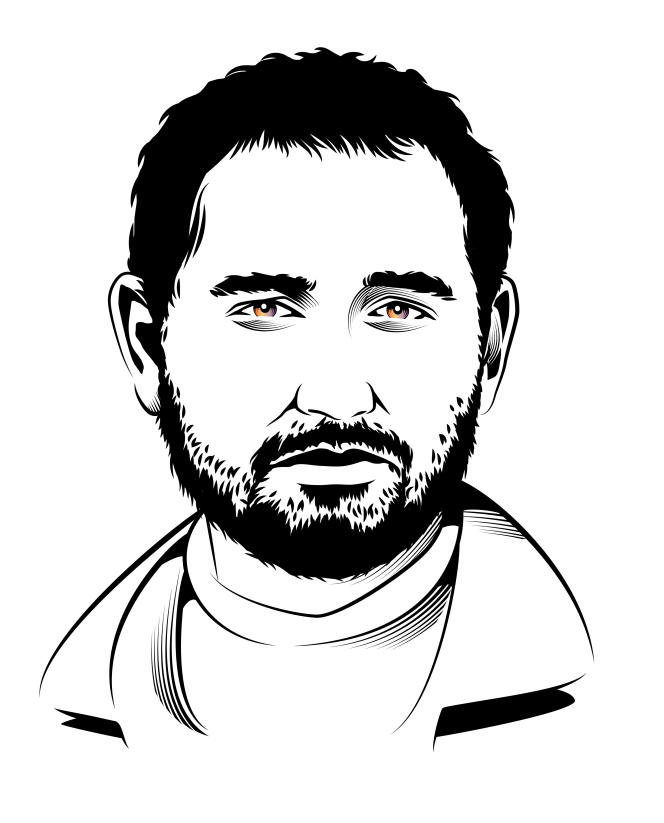Specialist in the constitutional evolution of Algeria, Massensen Cherbi is a doctor of law, graduated from the University of Paris-Panthéon-Assas. He is a temporary teaching and research assistant in public law at Sciences Po Grenoble.
I’ll start with an anecdote. One day, I asked the question of the results of independence to a retired Algerian who had practiced the engineering profession and must have been around 18 years old in 1962. He replied: “When I was young, we lighted up with cow dung. Today, he lives in a beautiful villa on the heights of Annaba, in eastern Algeria. It is undeniable that, in terms of economy or education, Algeria has made progress compared to the colonial era. There were about 15% of Algerians educated at the school of the Republic in 1954. They are almost all today.
We sometimes hear, among those nostalgic for French Algeria, that France had built about fifteen dams in one hundred and thirty-two years of colonization. Sixty years after independence, Algeria has nearly eighty. This did not prevent the frustrations and the feeling of “mal-vivre”.
On the one hand, the oil rent, which made it possible to buy social peace, thwarted the diversification of the economy and deepened the dependence on hydrocarbons. On the other hand, relative enrichment has not fulfilled aspirations for fulfillment. There is even the impression of a great waste in view of the potential that the country had and still has and which should have enabled it to move forward.
This question has arisen since the War of Independence. The Soummam National Liberation Front (FLN) congress in 1956 established the principle of the primacy of politics over the military. However, its instigator, Abane Ramdane, was assassinated in 1957.
The three colonels, Krim Belkacem, Abdelhafid Boussouf and Lakhdar Bentobal then took over within the FLN. They were then themselves dismissed by another colonel, Houari Boumediene, who took power in the summer of 1962 against the wilayas [territorial communities] of the interior and the provisional government of the Algerian Republic, by the force at his disposal thanks to the Army of the Borders.
A “militarized political system”, according to the formula of the jurist Madjid Benchikh, was thus put in place, even if the regime had a civilian appearance at independence, with the new president Ahmed Ben Bella. This system became even more overtly military after the Boumediene coup in 1965.
The 1980s had, of course, been marked by a depoliticization of the army, as shown by political scientist Myriam Aït-Aoudia, with a 1989 Constitution which had removed from the army its role as a shield of the socialist revolution.
However, the military institution was re-politicized with the rise of the Islamic Salvation Front (FIS), which led to the suspension of the electoral process in January 1992. The advent of President Abdelaziz Bouteflika, in 1999, was thus part of a certain continuity, since he had himself been the protege of Colonel Boumediene, to whom he owed his career. And it was ultimately the army that overthrew him on April 2, 2019. Because the Hirak demonstrators chanted “No to the fifth term” in vain, Bouteflika remained in place.
Institutional mechanisms were indeed powerless to allow his removal and he resigned only after a military statement calling on him to leave office “immediately”. And, throughout this year 2019, the real power of the army has never been felt so much.
It was at this time that appeared, within the Hirak, this demand for a “civil, non-military State”, which refers to the pre-eminence of politics over the military, already formulated during the famous congress of the Soummam or even in the draft Constitution of the federation of France [of the FLN], in 1962. In response, the army demonized it before introducing into the Constitution amended on November 1, 2020 a new provision giving it the mission to defend “the vital and strategic interests of the country” (article 30, paragraph 4). That is to say, it has de jure constitutionalized what, until then, was de facto. The “real power” of the military is now in the Constitution.
When it emerged on February 22, 2019, the movement was called the “smile revolution.” And, having experienced it in situ, I can testify that the term was quite appropriate. The demonstrators were happy to be able to express their sovereignty, their joy at being Algerians, their desire to be a nation.
Then came the repression, on June 19, with the pretext of the Amazigh [Berber] flag unfurled in the marches, which paved the way for all-out repression against the Hirak. Enthusiasm then gave way to an inversely proportional disillusion. I remember having taught, in December 2019, in Algiers, to students, relatively privileged otherwise, who said to me: “Sir, we all want to leave. »
Today, the feeling prevails of a great mess. After the popular enthusiasm that recalled the joy of the liberation of 1962, one had the impression of reliving the reversal of the situation of the summer of 1962. As if there were a parallel between a “confiscated” Hirak and what Ferhat Abbas called it “confiscated independence”. “Independence” was also one of the flagship slogans of Hirak, I even remember a sign on which it was written “1962, independence of the country, 2019, independence of the people”.
There was, in fact, a whole repressive arsenal which prevented this organization. The Hirak had to deal with a constitutional and legislative draconian apparatus, in terms of the rights to demonstrate, to create associations or political parties. And there was also this propaganda aimed at creating enemies from within.
Bouteflika left, but the political system remained in place throughout the Hirak. This is what makes the difference with Tunisia, where the dismantling of the Ben Ali system [1987-2011] was able to authorize a democratic transition in 2011. It is a little easy to accuse the weaknesses of the Hirak when it has had to face a repressive system that remained intact.
I don’t think there is a fatality. If we do comparative law, we observe that the Fifth French Republic was born of a military coup on May 13, 1958 in Algiers, and this founding event did not, however, produce a militarized political system in France.
The former USSR emerged from an armed revolution, but Stalin, a civilian, quickly got the better of the Red Army founder, Trotsky, until he purged a large part of the Soviet officers. There is not necessarily a causal link between military control and the fact of being the product of an armed revolution.
In Algeria itself, the army had agreed in 1989 to support the democratic transition, a process called into question by the rise of the FIS. But this Islamist danger has now disappeared, as we saw during the Hirak. There is no irreversibility, it is possible to get out of it. The army itself would gain from depoliticization, which would allow it to strengthen its traditional attributes of border defense.
This is all about identity. Should it be enclosed, defined, or should it remain open? The difficulty arose from the national movement, in particular with the definition of an identity centered solely on Islam and Arabism, while another current proposed that Algeria be more generally qualified as Algerian. This notion of Algerian Algeria, which created a crisis in 1949 within the national movement, means that the identity is diverse, alive and that it is susceptible to evolution. In 1962, the draft Constitution of the French federation thus simply referred to an undefined, that is to say open, “authentic national culture”.
Yet it is the conception of confinement to Islam and Arabism that ended up prevailing in constitutional texts or national charters. Faced with Berber protest movements – the “Berber spring” of 1980 or the “black spring” of 2001 – Amazighity will however end up being recognized. The language, Tamazight, will thus be constitutionalized as a national language in 2002 and then an official language in 2016. But Arabic remains “the” national and official language “of the State”, while Tamazight is “a” national language and official, without specifying what. There is therefore a certain openness to linguistic pluralism, but this remains quite limited, formal. The proportion of Algerians educated in Tamazight does not exceed a few percent.
So there is the big taboo. Islam has been the state religion since 1963 and, on religious pluralism, Algeria has sometimes opened up and sometimes closed.
In reality, there has always been a certain tolerance towards Catholics. There is even recognition of religions – Catholic, Protestant and Jewish – in Algerian legislation. But it is clear that, with the departure after 1962 of Europeans and Jews from Algeria, the country lost this diversity, these legislative provisions remained largely theoretical. The Algerians have thus gradually lived in a Muslim self-segregation, even if this Algerian Islam has experienced twists and turns.
After independence, reformist Islam was promoted against traditional, brotherhood and maraboutic Islam. Then, with the rise of political Islam in the 1980s, the authorities reversed course, this time in favor of brotherhood and maraboutic Islam. Evolving in this Muslim self-segregation, Algerians are not used to religious otherness. We see this with the 2006 ordinance condemning “proselytism” against Muslims, which targets neo-evangelicals but also Catholics.
Despite the openings, such as the inclusion in the school programs of Saint Augustine – born in Souk-Ahras (at the time Thagaste), in Algeria – there is always this institutional confinement. Freedom of conscience was thus removed from the Constitution during the 2020 revision.
It’s more complicated. In reality, one rather has the impression of a progressive secularization of Algerian society, as elsewhere in the world. The Hirak demonstrations, where Islamist demands were almost nil, showed this well. There is, in a way, a paradox between an institutional confinement in a mono-confessional identity and a secularization progressing slowly but surely in society itself.
It is necessary to make the difference between the institutional relations between States and the way in which the population perceives them. When official friendship is at its highest, there is the perception among the population that France supports the regime.
Thus during Jacques Chirac’s visit to Algiers, after Bouteflika’s re-election in 2004, the newspaper El Watan headlined: “La caution de Paris” and Le Matin: “Chirac whitewashes Bouteflika”. Then, when Emmanuel Macron “welcomed”, in March 2019, Bouteflika’s decision to give up his candidacy for a fifth term, or when he expressed his support for President Abdelmadjid Tebboune – declaring, in November 2020 to Young Africa, that he would do “everything possible to help [him]” – the impression prevailed, in the ranks of Hirak, that France was manipulating the leaders of Algiers, that it continued to pull the strings behind the scenes , that she had, in fact, never left Algeria since 1962.
Conversely, if Paris criticizes the Algerian authorities, then the accusation of the “foreign hand” is fused. The difficulty for France is that, whatever it does, it finds itself in an embarrassing position.
I add another element that shapes the Algerian perception of France. These are French non-stop news channels that are widely watched in Algeria. However, many of these programs give voice without contradiction to supporters of “nostalgeria” [nostalgia for French Algeria] stating enormities about the conquest and the colonial past. Not to mention an obsessive coverage of veil or burkini stories. When the Algerian public sees and hears all this, they end up convincing themselves that France remains hostile to Algeria and to Algerians living in France.

















